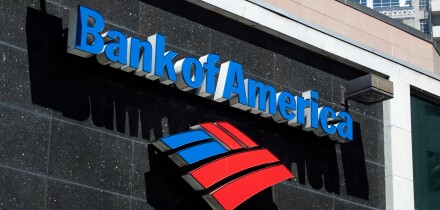Investors have had to cast their nets far and wide to earn any sort of return on their money in recent times. Central bank asset purchasing has run yields into the ground in core currency bond markets. That has created an opportunity for those willing and able to look at less popular currencies to earn higher returns.

Indeed, appetite for risk — in this case, FX risk — has driven investors to look outside core markets to where rates are higher and economies are growing faster. “With reducing risk premium in core markets, investors are increasingly willing to take currency risk for yield enhancement,” says Toby Croasdell, global head of MTNs and structured notes at Barclays in London.
“We tend to see overall support for risk,” adds Sameer Rehman, head of local currency bonds at TD Securities in London.
“This bodes well for niche currencies. I expect a lot of [what happened in] 2017 to be repeated in 2018, which is good for niche currencies. We have seen a big rebound for Brazil, Russia, India, China and South Africa.”
Picking which currencies are likely to see increased issuance depends on the various levels of economic performance and governance. “These currencies generally are thematically driven,” says Croasdell, “with markets becoming focused on the broader politics and economics of each geography.
“It will be an interesting year for offshore renminbi, as demand has been returning together with stability in the FX, following the depreciation through most of 2017. Argentinean pesos feature highly on many FX forecasts over the next 12 months, so we would expect it to continue attracting further demand.”
Sound practice
Overall niche currency bond volumes have been steady over the past two years. There were $21.9bn worth of bonds issued in 2017 by early October, according to Dealogic. That compared with $21.8bn in 2016. But another factor that could spur activity this year is regulation.
Niche currency markets can be a means of side-stepping barriers found in core markets, as they carry exemptions from legislation such as the European Union’s Market Abuse Regulation (MAR).
Of particular importance in this regard is the sounding of deals before they officially come to the market. The process of discussing potential trade ideas with investors and determining what is privileged or public information is different. In the EU, investors must consent to a sounding, dealers must keep detailed records of any discussions and must stick to a script throughout those discussions.
But since the financial crisis, banks have much less desire to take a punt on bringing what could prove an unwelcome deal to market, increasing the need for soft-sounding.
The cost of underwriting deals has risen as banks must hold more capital against trading positions.
More than ever before, no one wants to be caught long and wrong.
That has left dealers less willing to give commitments to issuers about bringing deals for them without having soft-sounded investors first.
That makes niche currency markets, outside EU rules, a welcome destination. Swiss franc bond bankers, for example, are said to be able to circumvent those rules. Investors are generally said to be happy to give syndicate desks feedback, offering comfort that a trade is do-able before bankers launch it formally.
But arbitraging regulation like that in an age where there is more of it than ever before is a game risk-averse bankers are not so keen to play, especially given the consequences for fines and other career-threatening sanctions.
Instead, in the hunt for arbitrage opportunities for their borrower clients, dealers are still most likely to stick to finding the sweet spots where cross-currency swap movements allow for an economic way to diversify an investor base.






